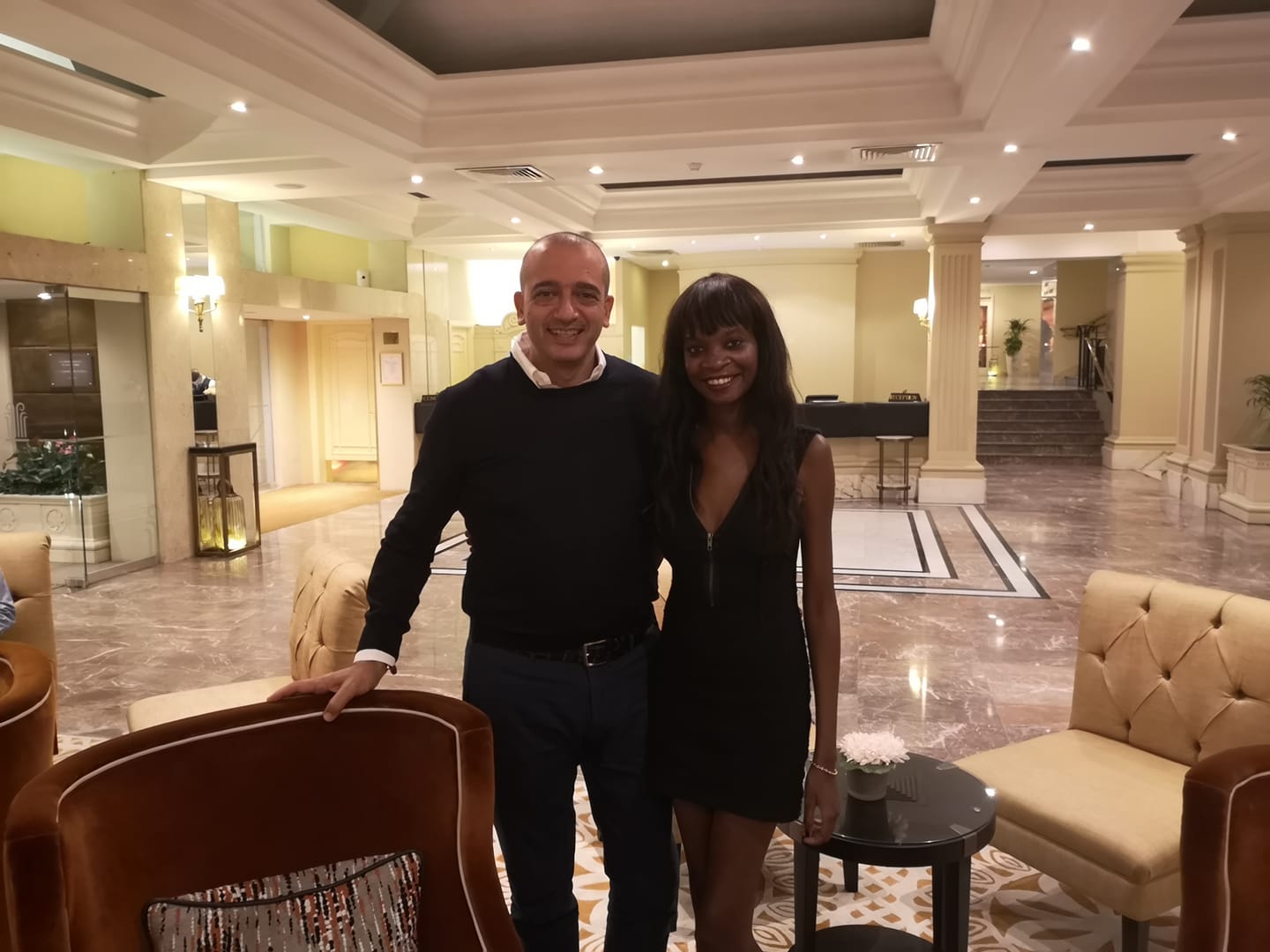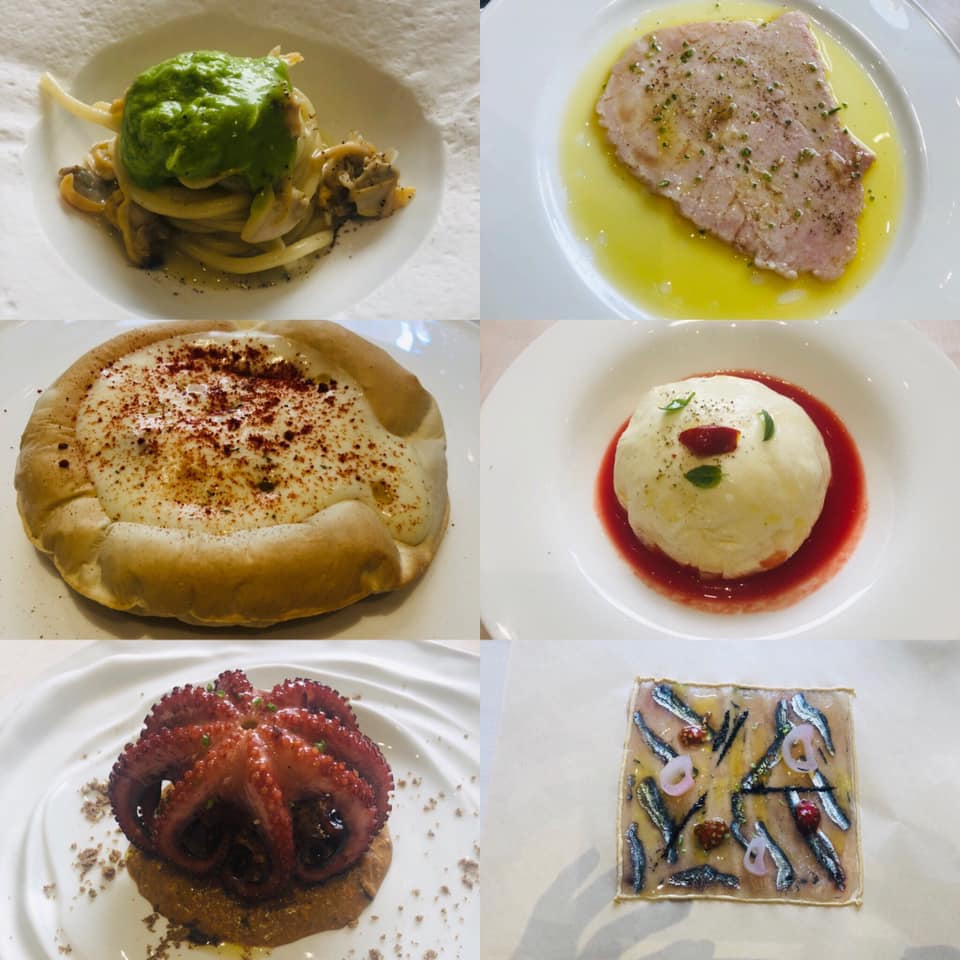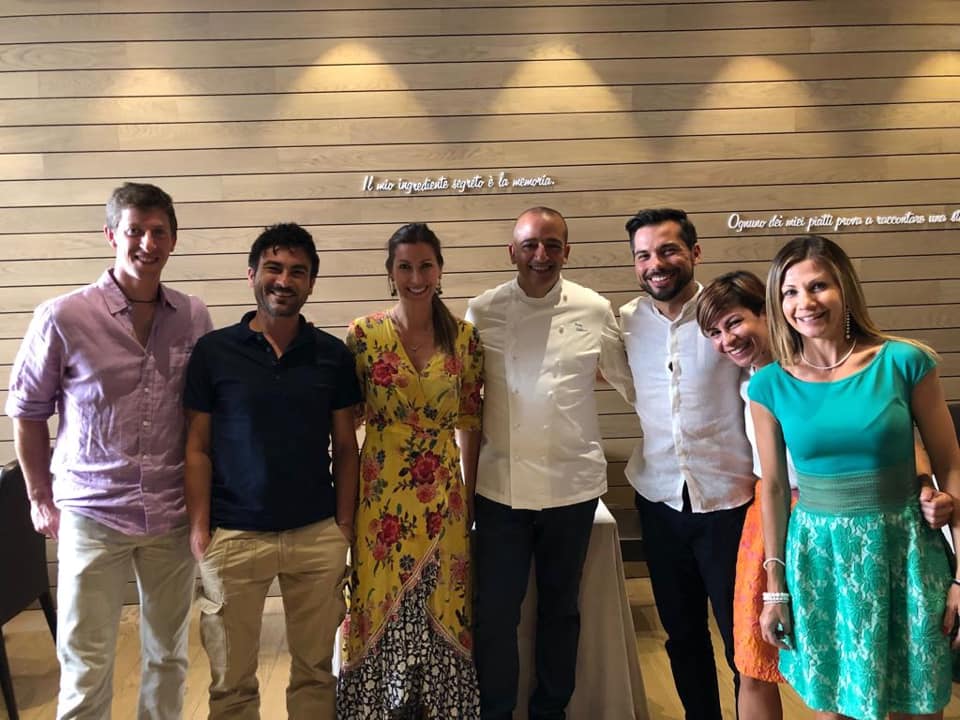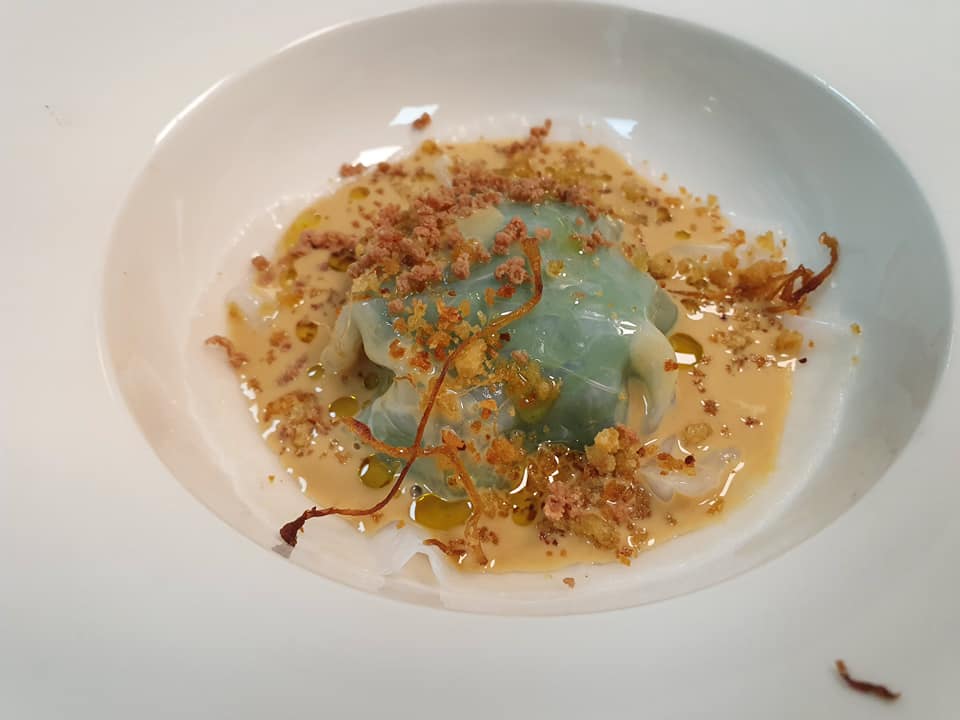Wanna get something off your chest?
Explore opportunities?
Have info to suggest?



Pino Cuttaia, the chef patron of the two Michelin restaurant La Madia in Sicily, was kind enough to set time from his busy schedule to speak with me prior to the spectacular Four Hands dinner which took place at the grand Villa Corinthia.
As I sat at the lobby of the Corinthia Palace Hotel & Spa in Attard with its executive chef Stefan Hogan and Alberto Bafumi (brand wine manager of Charles Grech), a humble yet charismatic man shows up with casual entire, giving me a very warm welcome. I knew he was a busy man so I start the interview straight away: 
Q: When did your love for cooking start and why?
A: This happened quite a long time ago when 14, I was helping my friend out in the restaurant on a New Year's Eve washing the plates. My love for the kitchen started then, and I never left the kitchen since that day. My friend said to me: “You have to be here because at midnight we’ll have a lovely glass of champagne.” I had never tasted champagne so I said: “It sounds like a good idea.”
Q: How do you create your menu? What inspires you?
A: The chef is almost always “pregnant” in the sense that he’s always chasing new ideas. I’m always thinking: “Where is the next idea going to come from?” Whenever I’m sitting down thinking of food or dishes I think: “How can I do this, or create that dish?” You never sit down and say: “I’m going to write a menu.” Every moment is the right time to create a dish.
Q: How did you feel when you saw the Michelin star? How have things changed since then?
A: When you’re working in this environment and then the Michelin guidance gives you recognition for your work, it’s almost like getting a degree. It means I was not working in a vacuum and people do understand what I was trying to do, and what I’ve been doing, and they appreciate it. It’s almost like becoming a doctor or a lawyer after university.
Q: Is it your first time in Malta? Why do you think there are no Michelin stars in Malta?
A: This is a great question and I want to share my opinion. I think Malta has a British mentality/culture. It is a very rich culture but I don’t think they ever utilised food as a strong element in their life. If I compare it to the Italian culture and how food has always been central and important for our cultural heritage, in Malta perhaps you’re less in tune with putting food and the dining experience at the centre.
Maybe if a Michelin chef were to open a restaurant in Malta and see what the country has to offer in terms of heritage and the telling of its story through its food, then maybe the guide might see the potential in coming here. 
Thirty years ago the quality of the food in Malta was not the same as it is now, so I think Malta might be ready to have a Michelin-starred restaurant. Malta is a country that’s economically rich, there are lots of hotels and it might be easier for hotels to invest in a philosophy that’s conductive of the Michelin star, so there is the potential there.
There is a lack of communication with journalists that creates poor interest in telling Malta’s story through the medium of food. When someone comes here and is someone able to tell the story and create the right ambience and atmosphere then that might interest Michelin. 
Possibly in Malta restaurants are looking at having people crammed in for more volume/money instead of having less covers in the restaurant. A lot of the philosophy in this type of restaurant is not about seeing it as a business but rather it’s about passing on an identity, creating a moment for the customer. The rest comes into place and it’s a natural progression. It’s about how you set the tables, how you produce the food; then it becomes a business. You don’t go into the restaurant saying: “I want it to be a business”.
It’s always very difficult because you never know what Michelin star’s criteria are. As you very well know, a Michelin star does not translate from country to country. Twenty years ago there was only one Michelin star in Sicily and now there are eleven starred restaurants. People saw the potential and the opportunities to tell Sicily’s story and grouped up. Through their synergies the Michelin stars grew because of that process.
Q: Do you have any advice for aspiring chefs who wish to get to the level you achieved?
A: I see the kitchen as a medium whereby the chef can pass on his experience and philosophy of life. I suggest to any young chef to learn as much as possible, learn and love the trade, so that you can then pass on your story through the medium of food.
Q: If you could only eat one more meal for the rest of your life what would it be? What’s your final death meal, if you were on death row?
A: I would want to have pasta alla Norma, with aubergines and tomatoes. If you’re about to die I don’t think you’re going to be that hungry though.
Q: What are your ‘pet hates’ in the restaurant or the kitchen? Is there anything you hate that chefs do or that some restaurants do?
A: I hate whenever people don’t bring love to what they do or when they only see the work as a mean to make money. Why would you go, as a customer, to a place you don’t feel welcomed, valued or respected?
Q: Where do you see yourself in five to ten years?
A: In Malta. I’m not joking. It’s always been a close country despite its different culture and traditions. I’ve always been curious about exploring with cuisine. I see the connection through the food and the culture. Telling the story of Malta but to a different and international audience.
